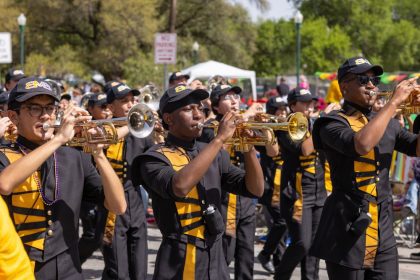In a significant legal development, two medical scholarship programs are facing lawsuits from a nonprofit organization known as Do No Harm. This group, which positions itself as a defender against what it terms the “woke” agenda in health care, claims that these scholarships discriminate against white male applicants. This controversy highlights the ongoing debate surrounding diversity, equity and inclusion initiatives in educational institutions.
The lawsuits explained
Do No Harm has filed lawsuits against two separate scholarship programs that it alleges exclusively benefit underrepresented minorities. The first lawsuit targets the Society of Military Orthopaedic Surgeons’ (SOMOS) E. Anthony Rankin Scholarship Program. According to the complaint, a member of Do No Harm was unable to apply for the scholarship due to his race. The lawsuit asserts that the program’s eligibility criteria unfairly exclude white males from participating.
The E. Anthony Rankin Scholarship is designed to support underrepresented medical students by pairing them with military hosts at medical centers. The program lasts four weeks and provides financial assistance of up to $12,000 for travel, housing and daily expenses. The lawsuit argues that by partnering with SOMOS, the program violates the Fifth Amendment by enforcing race-based eligibility requirements.
Second lawsuit against the University of Colorado
The second lawsuit targets the University of Colorado’s “Underrepresented Minority Visiting Elective Scholarship.” This scholarship, offered through the university’s medical school, provides up to $2,000 to cover costs associated with a four-week elective rotation. The eligibility criteria prioritize applicants who demonstrate a commitment to serving underserved populations and those who identify with historically underrepresented groups.
Do No Harm claims that the scholarship is discriminatory, despite the university’s assertion that it is “not limited to” specific races. The lawsuit argues that the scholarship’s focus on applicants from historically disenfranchised communities effectively excludes white males, even if they meet all other nonracial eligibility requirements.
The broader context of DEI initiatives
These lawsuits are part of a larger trend of pushback against DEI initiatives across the United States. Conservative groups have increasingly challenged programs that they believe discriminate against white individuals. This movement gained momentum following the U.S. Supreme Court’s 2023 ruling that struck down affirmative action in college admissions, which was seen as a significant setback for diversity efforts in higher education.
In September, the Fearless Foundation, a charity aimed at supporting Black women-owned businesses, faced similar scrutiny and was ultimately shut down for using race as a criterion for funding. This incident underscores the contentious nature of DEI initiatives and the legal battles that are likely to continue as various organizations navigate the complexities of race and inclusion.
Implications for future scholarship programs
The outcomes of these lawsuits could have far-reaching implications for scholarship programs across the country. If the courts side with Do No Harm, it may lead to a reevaluation of how scholarships are structured and who they are intended to benefit. Educational institutions may need to reconsider their eligibility criteria to ensure compliance with legal standards while still striving to promote diversity and inclusion.
The legal challenges to these medical scholarships reflect a broader societal debate about race, equity and the role of affirmative action in education. As the nation grapples with these issues, it is crucial for stakeholders to engage in constructive dialogue that considers the perspectives of all parties involved. The future of DEI initiatives and scholarship programs may hinge on the outcomes of these lawsuits, making it a pivotal moment in the ongoing conversation about race and opportunity in America.

















